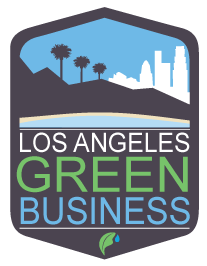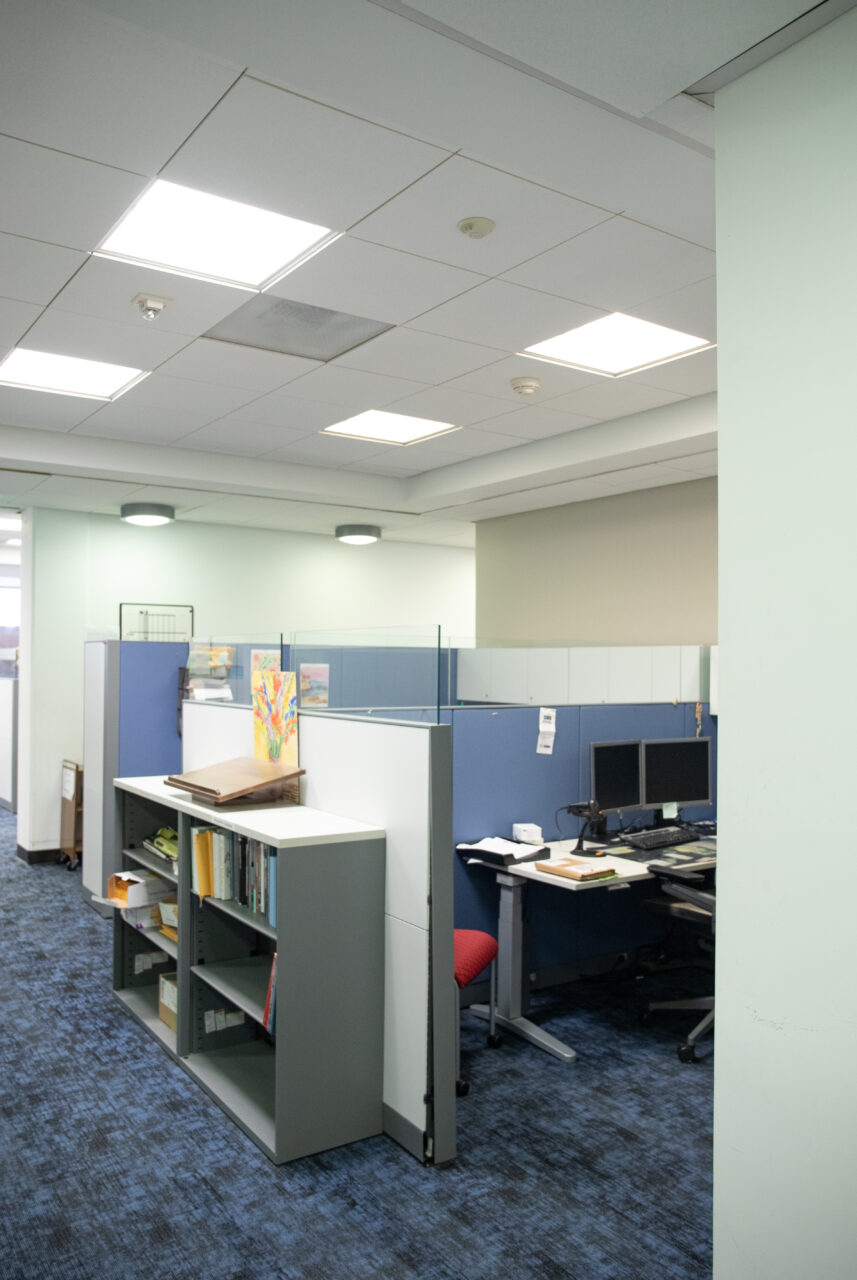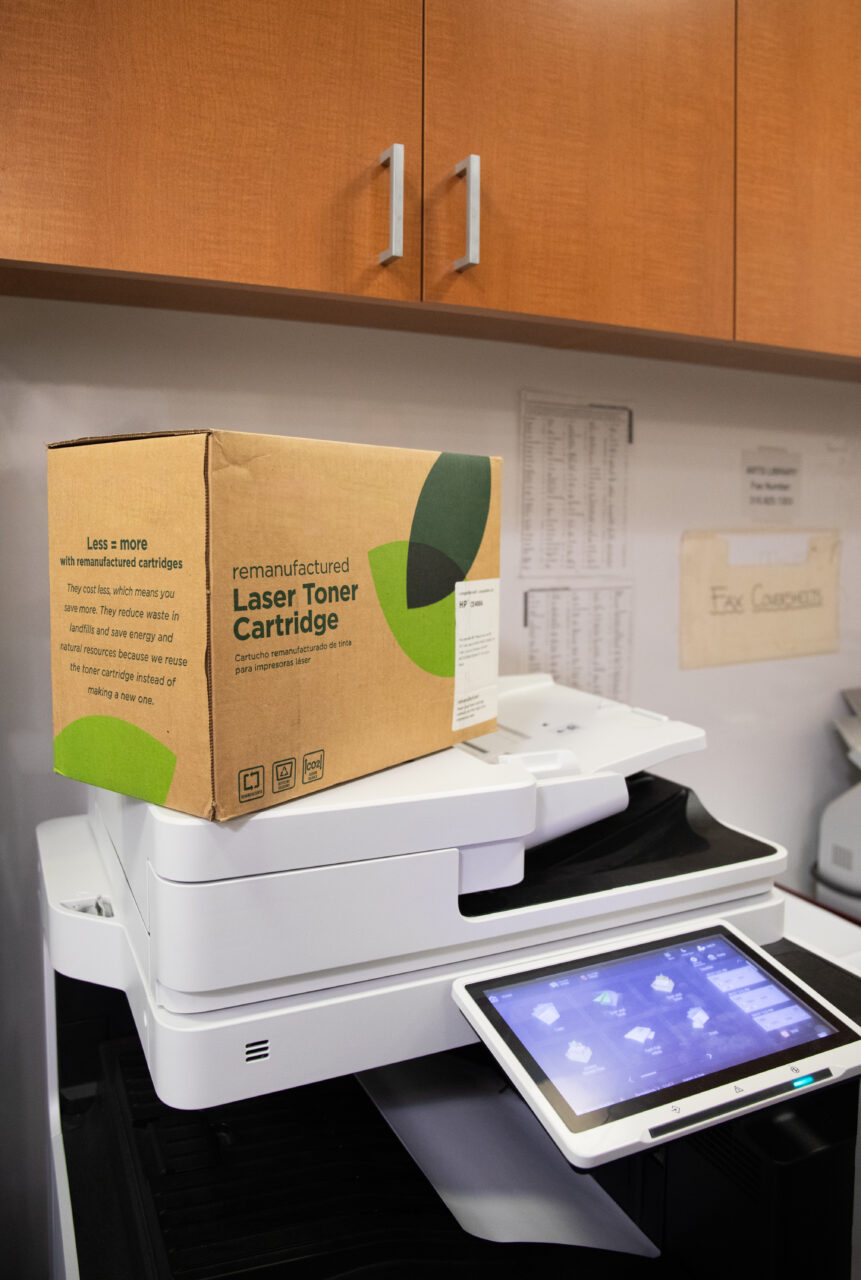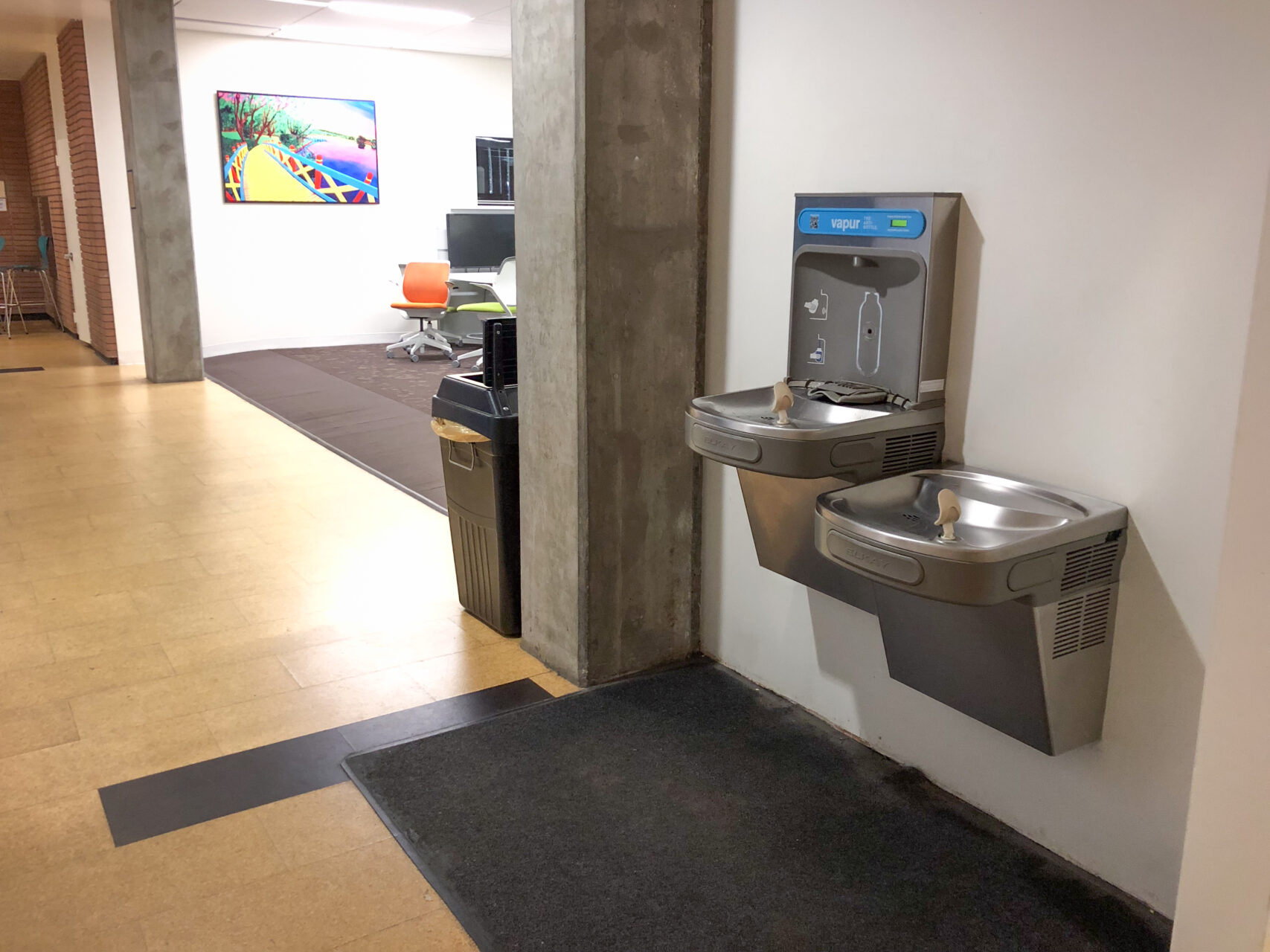
Tom Rosholt, UCLA Library’s building officer, was approached years ago about adding the then-new centralized waste bins with three streams for compost, recycling, and landfill on-site — some of the first ever placed on campus. That early ask turned into a grander effort that led to completing the City of Los Angeles Green Business Certification Program for UCLA Library locations spanning the system, including the Charles E. Young Research Library (YRL), Science and Engineering Library (SEL Boelter and SEL/Geology), Louise M. Darling Biomedical Library, Powell Library, Eugene and Maxine Rosenfeld Management Library, and the Music and Arts libraries.
“UCLA Library was the first entity on campus to complete the certification, and was happy to be the test subject and lead the way,” said Rosholt, who is stationed in YRL and handles facilities and related projects like remodeling and construction.

Becoming a Certified L.A. Green Business involves meeting program standards in the following categories: energy, pollution prevention, solid waste, transportation, wastewater, water, and community. Each has a detailed checklist of core measures to demonstrate progress. The process also involves site visits to each location with a liaison from the City. Overall, UCLA recently earned 66 L.A. Green Business certifications for departments from a variety of divisions, including: UCLA Anderson School of Management, UCLA Asset Management, UCLA Facilities Management, UCLA Graduate Division, UCLA Health, UCLA Meyer & Renee Luskin Conference Center, and UCLA Wilshire Center.

While achieving the City of LA’s green certification for multiple Library sites may seem like a heavy undertaking, because YRL did it first, it was easier the second go-around, according to Rosholt.
For example, with purchasing, while different, the libraries use similar products. Sustainable changes in purchasing included switching to soy-based ink and going with multi-use recycled copy paper — and a commitment to ENERGY STAR® equipment and appliances.


Another innovation was IT standardizing the computers to turn off and save energy when not in active use with power management software. Lighting occupancy sensors also help conserve energy, along with switching to energy-efficient bulbs and fixtures in other locations. Using programmable and smart thermostats also helps conserve power. Transitioning to DocuServe—secure digital content used for printing, signing, scanning, and sending documents—also helps save paper.
For the community category, there is signage at several spots within each location educating on-site staff, other Bruins, and campus visitors about properly disposing of waste and reminding them to conserve energy by switching off lights, along with information about the University of California Sustainable Practices Policy.

These sustainable modifications apply to office spaces for staff and commons areas utilized by students, faculty, and visitors. For the public areas, one alteration was the installation of hydration stations to encourage reusable containers and temper purchases of single-use plastic water bottles. Within offices, for staff, there are reusable plates, bowls, utensils and cups, and more water stations. Several Library employees also ride bikes or take LA Metro to work – fulfilling the green commuting requirement in the transportation category of the checklist.
Rosholt was pleasantly surprised by the number of people actively wanting to help comply with the certification and enthusiastic to make changes. “Library staff are already conservation-minded, so convincing them to go green wasn’t needed, which was nice,” said Rosholt. “It’s a big thing to establish a culture of sustainability, through a certification like this – and get support for it.”
